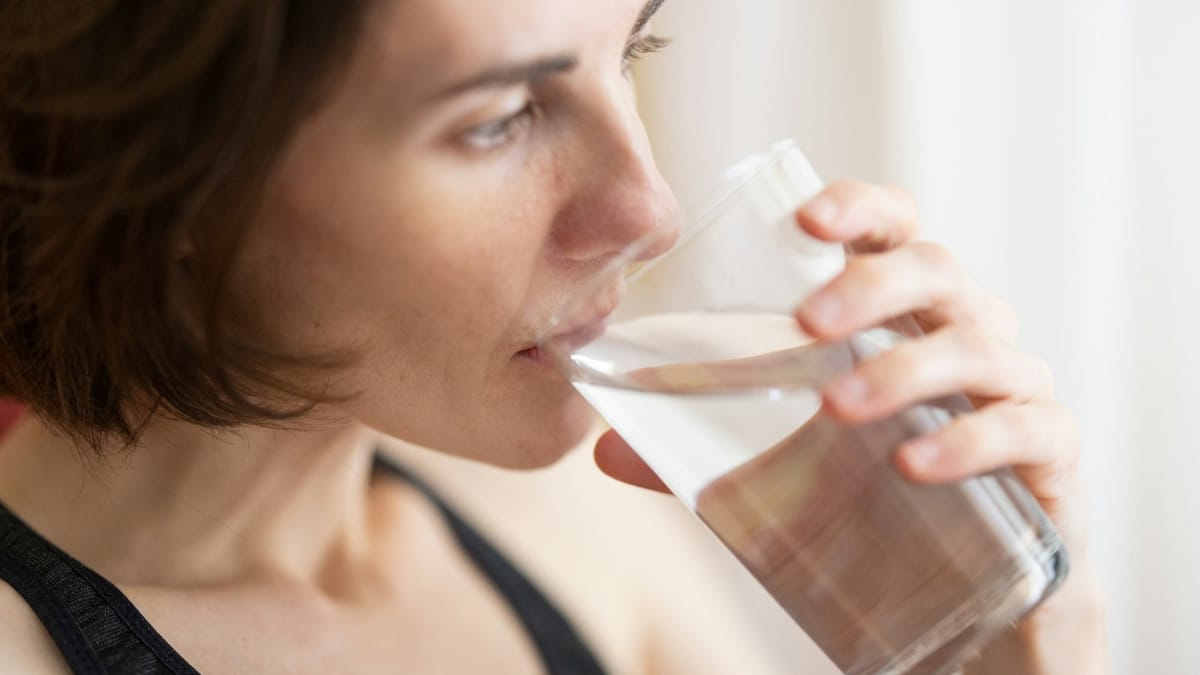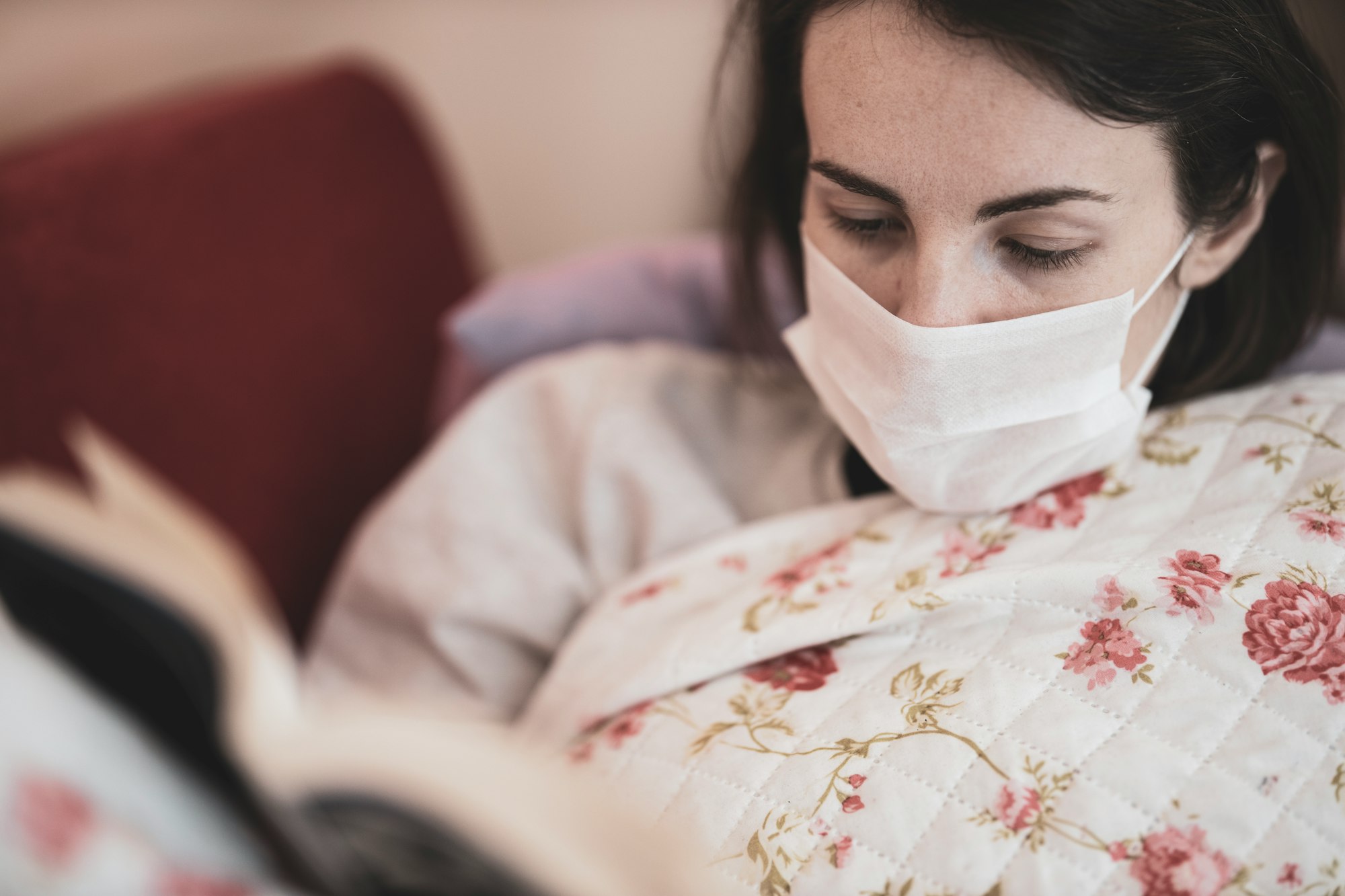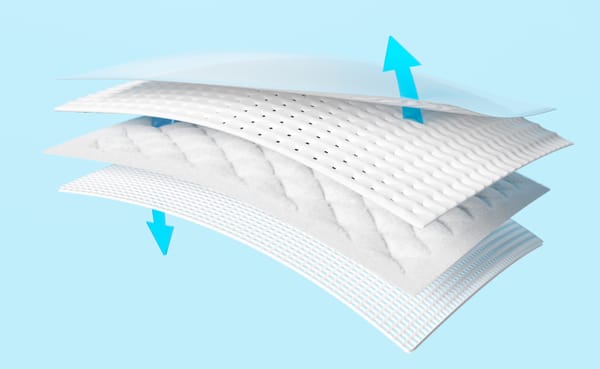Can Dehydration Cause Hallucinations?
Severe dehydration can lead to hallucinations as the body and brain struggle without enough fluids. Dehydration affects electrolyte balance, leading to confusion, disorientation, and even visual or auditory hallucinations. Staying hydrated is essential for mental clarity.

When Thirst Takes a Toll: Dehydration and Its Influence on Hallucinatory Experiences
Welcome to the guide that will help you understand if dehydration can cause hallucinations. In this guide, we will discuss what dehydration is, what hallucinations are, and how they are related. We will also look at symptoms and underlying causes of dehydration, treatment methods, and preventive measures.
Dehydration occurs when the body loses more fluid than it takes in. It can be caused by illnesses such as vomiting or diarrhea, as well as activities that make us sweat. It is important to drink plenty of fluids and replace electrolytes to help prevent dehydration.
Hallucinations, on the other hand, are when someone sees, hears, smells, or feels things that are not actually there. The exact cause of hallucinations is still not known, but it is believed that they may be caused by an imbalance in brain chemicals or a lack of sleep.
In this guide, we will explore the connection between dehydration and hallucinations, and discuss ways to prevent and treat them. By the end of this guide, you will have a better understanding of the risks associated with dehydration and the potential for it to cause hallucinations, and what to do if hallucinations happen.
What is Dehydration?
Dehydration occurs when the body does not have enough fluids to function correctly. It can happen for a variety of reasons, including not drinking enough water, sweating too much, or suffering from certain medical conditions. There are a few symptoms that indicate dehydration, such as feeling very thirsty, having dry mouth, fatigue or dizziness, dark yellow urine, and headaches.
The most common cause of dehydration is not drinking enough fluids. If the body does not get enough moisture, it can lead to dehydration. Other causes include excessive sweating due to strenuous exercise or hot weather, vomiting or diarrhea, and certain medical conditions.
When the body is dehydrated, it can affect the functioning of organs and cause electrolyte imbalances. This can lead to implications such as impaired brain function, decreased energy levels, increased risk of infections, and problems with cognitive and motor skills. Chronic dehydration may also contribute to other health issues, such as kidney stones and urinary tract infections. In extreme cases, dehydration can impair mental capacity leading to hallucinations and confusion, necessitating immediate medical attention to restore bodily fluids and electrolytes.
In extreme cases, dehydration can be very serious and can even be life-threatening. Severe dehydration can cause seizures, low blood pressure, and loss of consciousness. If someone experiences any of these symptoms, they should seek medical attention immediately.
To prevent dehydration, it is important to drink plenty of fluids, particularly during hot weather or after physical activity. Eating foods with high water content, such as fruits and vegetables, can also help. It is also recommended to avoid drinks which contain caffeine and alcohol, as these can lead to further dehydration.
Underlying Causes and Risk Factors of Dehydration
Dehydration is a condition that occurs when your body does not have enough water to carry out its functions. It is caused by a loss of fluids through activities such as sweating, urination, and vomiting. Dehydration can lead to an imbalance in the body, which can manifest itself in a variety of physical, mental and emotional symptoms.
Physical Causes
One of the major causes of dehydration is excessive sweating. When you sweat, your body produces less fluid than it needs to maintain balance in the body. This can lead to an electrolyte imbalance, which can cause dehydration. Another major cause of dehydration is excessive urination. People with certain medical conditions, such as diabetes, may experience excessive urination, which can result in dehydration. Vomiting and diarrhea also cause dehydration as they flush out fluid from the body at an abnormally high rate.
Effects of Dehydration
Dehydration can have a variety of effects on the body, both physically and mentally. Physically, dehydration can lead to dizziness, fatigue, headaches, and muscle cramps. It can also cause dry skin, chapped lips, and dry mouth. On the mental side, it can cause confusion, difficulty concentrating, and forgetfulness. In some cases, dehydration can lead to hypnagogic hallucinations, which are sensory misperceptions that occur just before falling asleep. If left untreated, dehydration can lead to more serious medical complications, such as heat exhaustion, kidney failure, or even death.
What are Hallucinations?
Hallucinations are false perceptions of sensory experiences that can involve any of the senses, including sight, sound, smell, touch, and taste. These experiences can be incredibly vivid and real to the person experiencing them, even though they are not based in reality. Visual hallucinations might involve seeing shapes, colors, or even people that aren’t there, while auditory hallucinations could include hearing voices or sounds. Less commonly, olfactory (smell-related) and gustatory (taste-related) hallucinations can occur, leading to the perception of smells or tastes that have no external source. Tactile hallucinations involve feeling sensations on the skin, such as crawling or pressure.
Hallucinations can be caused by a variety of factors. Severe dehydration is one such cause, as it can disrupt the normal functioning of the brain. Other potential causes include certain medications, sleep deprivation, and underlying medical conditions such as psychotic disorders. Hallucinations can be distressing and significantly disrupt a person’s daily life, making it essential to seek medical attention if they occur. Understanding the root cause of hallucinations is crucial for effective treatment and management.
The Link Between Dehydration and Hallucinations
Dehydration can indeed trigger hallucinations, particularly in individuals who are severely dehydrated. When the body loses fluids and electrolytes, it can no longer maintain the balance necessary for normal brain function. This disruption can lead to false perceptions and hallucinations. Symptoms of dehydration, such as headaches, fatigue, and dizziness, can further increase the risk of experiencing hallucinations.
In severe cases, dehydration can lead to cerebral tissue swelling, a condition where the brain swells due to a lack of fluids. This swelling can cause significant neurological disturbances, including hallucinations, confusion, and even coma. If left untreated, severe dehydration can be life-threatening. Therefore, it is crucial to recognize the signs of dehydration early and take steps to rehydrate promptly. If hallucinations occur, it is essential to seek medical attention immediately to prevent further complications.
How Dehydration Affects the Brain
Dehydration can have profound effects on the brain, leading to hallucinations and other mental health issues. When the body is dehydrated, the brain’s ability to function properly is compromised. This impairment can result in changes in mental capacity, increasing the risk of hallucinations. One of the key factors is an electrolyte imbalance, which occurs when the body loses essential minerals like sodium and potassium. These electrolytes are crucial for transmitting electrical signals in the brain, and their imbalance can disrupt normal brain activity, leading to hallucinations.
Additionally, dehydration can cause an increase in blood pressure. This rise in blood pressure can further exacerbate the risk of hallucinations by putting additional strain on the brain. In severe cases, dehydration can lead to organ failure, making emergency medical intervention essential. Restoring fluid intake and correcting electrolyte imbalances are critical steps in treating dehydration and preventing severe complications. Maintaining proper hydration is not only vital for physical health but also for mental well-being, as it helps to prevent the onset of dehydration-related hallucinations and other mental health issues.
Severe Dehydration: Exploring its Effects, Risks, and Electrolyte Imbalance
Dehydration occurs when your body loses more water than it takes in. Mild dehydration is quite common and can usually be reversed by drinking fluids, but severe dehydration can result in serious health complications.
When dehydrated, the body can no longer perform its functions properly, leading to a number of physical symptoms such as dizziness, confusion, and weakness. Severe dehydration can put a strain on the body’s organs, leading to fatigue, dry mouth, headaches, rapid heartbeat, and even coma in extreme cases.
Dehydration can be caused by a variety of factors, including fever, excessive sweating, vomiting, and diarrhea. People who do not drink enough fluids, or those who are under prolonged physical exertion, may also become seriously dehydrated.
Severe dehydration is particularly dangerous for young children, elderly people, and those with existing chronic health conditions. In these cases, it can lead to shock, organ failure, and even death if untreated.
If you believe that you or someone you know is severely dehydrated, seek medical attention immediately. It is important to rehydrate and replenish electrolytes as soon as possible in order to avoid further complications.
Hallucinations are sensory experiences that are not based in reality. They can affect any sense - sight, touch, taste, smell, or hearing - and typically occur when a person is in an altered state of consciousness, such as under the influence of drugs, during sleep, or under extreme stress. In some cases, hallucinations can be caused by a medical condition, such as schizophrenia or Parkinson’s disease.
Hallucinations can vary greatly from person to person. Visual hallucinations may include seeing shapes or colors, while auditory hallucinations may include hearing voices or music. Olfactory (smell-related) and gustatory (taste-related) hallucinations are less common. Gustatory hallucinations involve experiencing unusual tastes, such as perceiving a metallic flavor in food or drink, which can arise from various medical conditions or neurological issues. A person may also experience tactile hallucinations, which involve feeling pressure or texture on the skin.
Possible causes of hallucinations include drug use, sleep deprivation, mental health disorders, brain injury, and dehydration. Dehydration occurs when the body does not have enough water, and can lead to a range of symptoms, including confusion, dizziness, and hallucinations. It is important to stay hydrated to avoid these symptoms, as severe dehydration can be life-threatening.
Dehydration and Hallucinations: Examining the Connection
Dehydration is a condition which occurs when the body does not have enough fluid to function properly. The main symptoms of dehydration are thirst, feeling dizzy, dry mouth, lack of energy, and lightheadedness. In severe cases, dehydration can cause hallucinations, confusion and other serious health problems. Therefore, it is important to understand the connection between dehydration and hallucinations, and how this can lead to further complications.
The first thing to note is that dehydration can lead to an electrolyte imbalance in the body. Electrolytes are minerals like sodium, potassium, chloride, and others, that help regulate bodily functions. When the body is dehydrated, it cannot absorb and regulate electrolytes efficiently, leading to an electrolyte imbalance. This electrolyte imbalance can then affect the body’s ability to process and interpret information, potentially resulting in hallucinations or delusions.
Dehydration can also cause other changes in the body, such as lower blood pressure and reduced oxygen levels. These changes can lead to mental confusion, which is often caused by a lack of oxygen in the brain. In addition, dehydration can also cause a deficiency in certain vitamins and minerals, such as magnesium and zinc, which can also impair cognitive functioning and cause mental disturbances.
It is important to note that hallucinations and other mental disturbances are not a normal symptom of dehydration. These symptoms are usually only seen in severe cases, and if they occur, medical attention should be sought immediately. If left untreated, dehydration can lead to a number of other health complications, including organ failure, electrolyte disturbances, and shock. Therefore, it is essential to be vigilant in recognizing the symptoms of dehydration and take steps to rehydrate as soon as possible.
In conclusion, it is clear that dehydration can lead to mental confusion, hallucination, and other health complications. It is important to understand the connection between dehydration and hallucinations, and take action to prevent them from occurring. It is also imperative to seek medical advice if any of these symptoms appear, as they can quickly become dangerous if left untreated.
Preventing dehydration is key to avoiding dehydration-related complications, such as hallucinations. There are several steps you can take to ensure that your body stays properly hydrated.
Firstly, it’s important to drink enough fluids. Place a bottle of water near you, and take regular sips throughout the day. This will help build up your body’s fluid level quickly. You should also aim to drink around eight glasses of water per day.
It’s also useful to check your urine color. Ideally, you should aim to have your urine the same color as lemonade. If it’s darker than this, then you’re not drinking enough fluids and need to increase your water intake.
You should also limit your consumption of diuretics such as alcohol, coffee, and tea. These drinks can cause your body to lose more water than it takes in, leading to dehydration.
Adding electrolytes to your diet can also help. Electrolytes are minerals that help your body to maintain a healthy balance of fluids. Eating foods high in electrolytes, such as bananas and potatoes, or taking electrolyte supplements can be beneficial.
Finally, if you’re going to be outside on a hot day, make sure you carry a water bottle with you. Aim to drink regularly, and seek shelter or rehydrate when necessary. Taking short breaks throughout the day can also help to keep your body cool and reduce the risk of dehydration.
By following these simple prevention tips, you can reduce your chances of becoming dehydrated and experiencing hallucinations.
Treating Dehydration with Proper Fluid Intake and Preventing Further Complications
In order to treat dehydration, it is important to restore the lost fluids and electrolytes in your body as soon as possible. Depending on the severity of the dehydration, there are a variety of treatments that can be used. Mild dehydration can typically be addressed with simple hydration methods such as drinking water or unsweetened electrolyte drinks. For more severe cases, medical attention may be needed.
If you have mild dehydration, a good place to start is by drinking plenty of fluids. It is also important to avoid drinks that contain a lot of sugar or caffeine, as these can make dehydration worse. You should also take time to rest and replenish any lost electrolytes through electrolyte-rich foods such as bananas, avocados, or yogurt. If you begin to feel any symptoms of severe dehydration, such as confusion or fainting, seek medical attention immediately.
When it comes to preventing further complications from dehydration, it is important to focus on maintaining proper hydration. This means drinking enough fluids throughout the day, eating electrolyte-rich foods, and avoiding drinks that can lead to dehydration. In addition, it is important to recognize the signs and symptoms of dehydration early on and take steps to address them. Finally, if you are engaging in activities that may put you at risk for dehydration, such as exercising in hot temperatures or taking certain medications, it is important to make sure you stay hydrated and take frequent breaks.
Many people misunderstand the connection between dehydration and hallucinations. It is a common misconception that dehydration can cause hallucinations. However, this is not necessarily true. While severe dehydration can lead to delirium and psychosis, it is more likely that these issues are caused by an underlying medical condition that is made worse by dehydration.
Dehydration itself does not usually cause hallucinations. Factors such as age, mental health issues, physical or psychological stress, or certain medications can all play a role in causing the individual to experience hallucinations even if they are well-hydrated. Similarly, believing one is dehydrated when in fact they are not could be a factor in causing hallucinations.
It is important to note that in some cases, dehydration can be a contributing factor to an episode of hallucinations. If conditions like seizures contribute to the hallucinations, then it is possible that being dehydrated may make them worse. It is also possible that someone who is severely dehydrated could experience delirium, which could result in confusion and disorientation, as well as visual and auditory disturbances similar to hallucinations.
Ultimately, it is essential to seek medical advice if one is experiencing any sort of hallucination. It is important to rule out any underlying causes before attributing the hallucinations to dehydration.
In conclusion, we have explored the direct connection between dehydration and hallucinations, as well as other potential causes of hallucinations such as mental health issues and medications. It is important to stay hydrated in order to avoid dehydration and the possible side-effects it can cause, including hallucinations. Prevention is key when it comes to avoiding dehydration, so drinking water regularly and avoiding extreme temperatures are both advisable. If dehydration does occur, rehydrating and treating dehydration quickly is important, as there are potential risks associated with severe dehydration. Lastly, it is important to be aware of the common misconceptions surrounding dehydration and hallucinations, so that people can take the necessary steps towards staying healthy.
You might also like this article:









